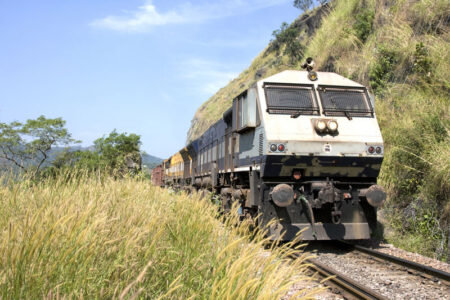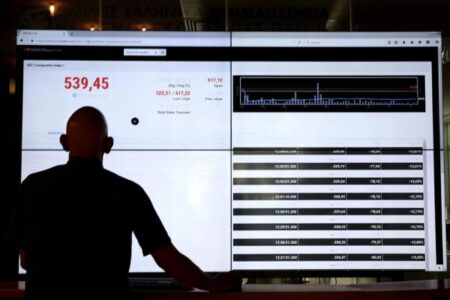By Anna Mehler Paperny and Nivedita Balu
TORONTO (Reuters) – As Canada braced for a freight rail stoppage that could hit industries ranging from autos to agriculture, the trucking sector said it faced higher demand it could not meet.
Unless labor agreements are reached, Canadian National Railway (TSX:) and Canadian Pacific (NYSE:) Kansas City – which hold a duopoly – plan to indefinitely halt operations on Thursday at the same time, marking a first.
Canada relies heavily on railways to transport goods and commodities, but trains are already winding down in anticipation of a strike or lockout.
Daman Grewal, a senior operations manager with British Columbia-based Centurion Trucking, would normally expect 20 or 30 online postings from shippers seeking trips east across Canada on an August Monday. On Monday morning, he saw more than 500.
“Last week is when a lot of the panic started to set in,” said Grewal, noting trips for which he charged C$7,000 ($5,139) a few days ago now cost up to C$9,000. “Similar to COVID, you see the scarcity in supply chain.”
Grewal said Centurion could increase capacity 10% to 20%, largely by reducing driver downtime.
“We would just have to turn the drivers around a little bit quicker,” he said.
Industry officials said some softening in the economy has left room to increase capacity but not enough to make up for idled railways.
Some rail shippers have been trying to book additional truck capacity since February ahead of a disruption, said Alberta Motor Transport Association president Robert Harper.
“The industry can help out in the short term in reallocating assets, but in the long term you simply cannot replace long-haul rail distribution. Because in some cases, the industry doesn’t have the equipment nor the capacity,” Harper said.
NO PLAN B
U.S. freight forwarder C.H. Robinson estimates 85% of U.S.-Canada cross-border road freight in either direction is handled by Canadian trucking carriers.
“Anytime you have an event that causes a surge in trucking demand and sudden tightening of capacity, costs in the spot market can increase dramatically. In the past, we’ve seen rates in Canada double overnight,” said C.H. Robinson’s vice president for Canada Scott Shannon, adding this will result in not just higher costs, but also longer lead times.
CN and CPKC have begun phased shutdowns of their networks ahead of the looming stoppage.
The severity of the disruption, should it occur, will be a factor of how long it lasts, said Joseph Towers, a senior rail analyst at FTR Transportation Intelligence.
Canada’s federal government may have no choice but to step in to end a stoppage that could cripple industries, said Western University supply chain expert Fraser Johnson.
“There is no Plan B for any of these industries because it’s not practical to substitute trucks for established supply chains that use rail. … You can’t snap your fingers and increase your capacity in terms of trucking.”
($1 = 1.3620 Canadian dollars)
Read the full article here
















